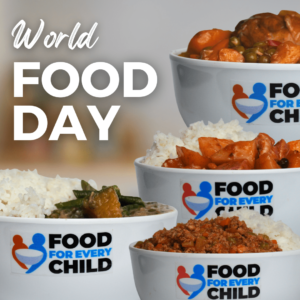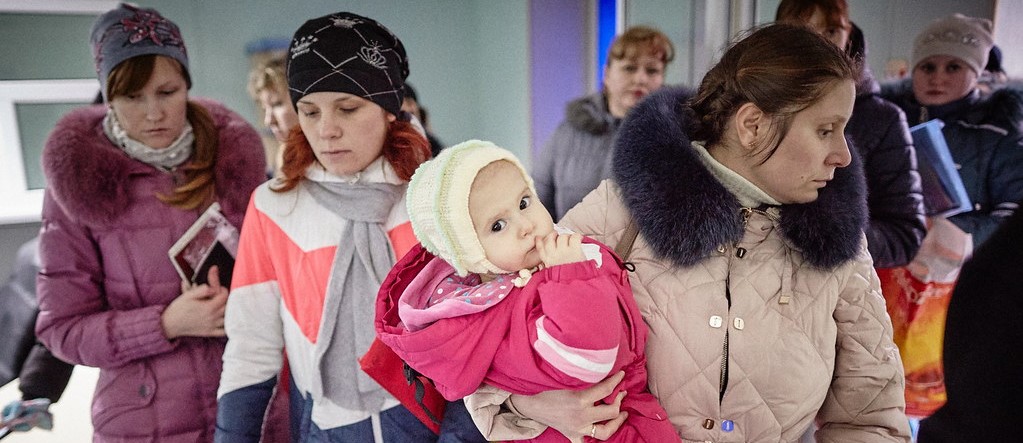
World Food Day: Let’s Build a Hunger-Free World for All Children
In the spirit of World Food Day, we stand united to combat child hunger and its far-reaching consequences. Join us on this journey towards a brighter, nourished future for every child.


Even before Russia invaded Ukraine, the impact of various man-made conflicts, such as COVID-19, was hurting the world economy and had disastrous effects on the lives of the poor in low-income and developing nations.
Global food costs have been rising since the middle of 2020 and are now at an all-time high as a result of the COVID pandemic, supply chain problems, and surging inflation.
Three nations control 68% of the world’s wheat reserves, while seven nations account for 86% of wheat exports. When it comes to coarse grains, corn, rice, and soybeans, the statistics are comparable.
Before the war, Russia and Ukraine supplied roughly 30% of the world’s wheat and barley. Thirty-six countries relied on them for more than half of their wheat imports, including some of the world’s most vulnerable and impoverished. Moreover, fuel prices have reached a seven-year high. Sixty percent of low-income nations are either at high risk of or are already in debt crisis, up from 30% in 2015.
Shocks like the Ukraine war highlight the fact that food insecurity issues are not always due to availability issues. It’s more a matter of affordability and accessibility.
Food insecurity will likely reach previously unheard-of heights as the war carries on. There will be a shocking 17% increase in the number of people experiencing acute hunger in the 81 countries where the UN World Food Programme (WFP) operates, or an additional 47 million people, from 276 million to 323 million. Sub-Saharan Africa will experience the largest increases.
When crises like the war in Ukraine occur, the world’s food supply can be abruptly disrupted, resulting in high costs due to the markets’ concentration and fragility.

Even while food costs have dropped from recent highs in many regions, high food—and energy—prices have generated a cost-of-living crisis that is expected to worsen poverty and harm growth, potentially igniting political instability.
As a result, several countries’ policymakers have implemented fiscal measures to protect citizens from the ongoing food crisis.
That being said, the international community should concentrate on the following:
To alleviate the global food crisis and prevent human suffering, strong and rapid governmental
action is required in four areas:
Social aid in the short term should concentrate on giving the poor emergency cash transfers or food support. In cases when this is not feasible, interim relief may be offered through second-best tax and subsidy policies.
The World Bank and other multilateral development banks play an important role in increasing trade financing for agricultural commodities and other food goods, as well as providing assistance to governments in upgrading vital logistics and infrastructure.
The international community must also act swiftly to guarantee that the necessary funding is available to address the crisis immediately and to improve food security in the medium- to long term. Food security institutions must be effectively funded since they play an important role due to their local presence in many countries and unrelenting focus on the human cost of severe food poverty.
More grants and concessional financing from donors and international organizations are urgently needed to supplement financial and in-kind help for those most vulnerable to food insecurity. Debt relief will also be necessary for some countries.
Ultimately, we must rethink our approach to conflict and its repercussions. To maintain complementarity and optimum efficiency in resource utilization, a thorough and well-coordinated approach is required.
We must all act today to alleviate the suffering of those who are hunger-stricken by providing
the necessary funding to countries that take meaningful policy action

In the spirit of World Food Day, we stand united to combat child hunger and its far-reaching consequences. Join us on this journey towards a brighter, nourished future for every child.

Ensuring that every child has access to nutritious meals is not just a matter of physical health but also a fundamental building block for their mental and emotional well-being.

In countries with easy access to food, millions of children still suffer from malnutrition. This crisis often stems from the stark difference between empty calories and nourishing meals.
Adding {{itemName}} to cart
Added {{itemName}} to cart
Notifications
We’re here to answer any question you may have.
Address
5900 Balcones Drive Suite 100 Austin, TX, 78731
contact@foodforeverychild.org